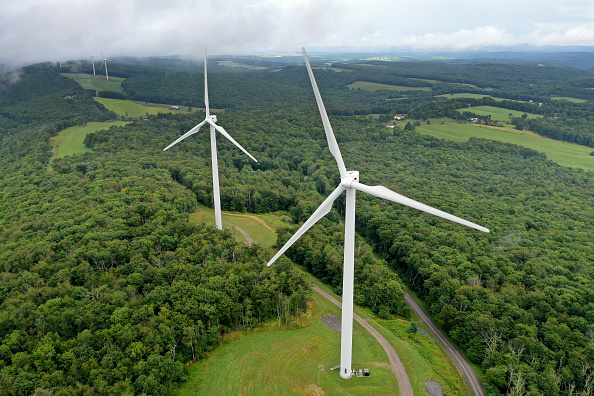Spiralling energy prices are a powerful lesson for our future plans for green power

For most politicians and commentators, green taxes are firmly established as an unequivocally Good Thing. True, Liz Truss has called for green levies to be temporarily halted to help drive down energy bills. But even if the next prime minister does intervene, once world energy prices start to fall substantially, she would be under enormous pressure to restore the taxes.
In principle, the reasoning behind the green levy is simple. Taxes push up overall bills, adding around 8 per cent to the price of energy prices. This money is then used to fund schemes to invest in more renewable kinds of energy and the higher prices incentivises people to consume less and be more energy efficient.
But as we have seen, not all increases in energy prices are welcomed with open arms.
The price increases as a result of the market, the interactions of real world demand and supply, have been met with a plea to the government: do everything possible to protect consumers and companies alike from their impact.
A range of different policies have been put forward. But all are intended to ensure that people can continue to consume just as much energy as they did before world energy prices began their spectacular rise last year.
The truth is, this simply isn’t feasible. And that is something most politicians are too frightened to tell us. Even Rishi Sunak with his promise not to sell us “fairy tales” will not really admit that there is little we can do to keep things as they were.
It cannot be stated too often that the increase in world energy prices means that the real national income of the UK, and all other net energy importers, has fallen. Income has been transferred from net importers to net exporters.
No sleight of hand, no amount of cleverness can obscure this fundamental fact. The average standard of living has fallen, just as it did after the massive increases in oil prices in the mid-1970s. Although individual groups of workers might be able to protect themselves by securing large enough wage increases, collectively this is simply not possible.
For once, the International Monetary Fund is talking sense when it argues that the only sensible thing to do is to design interventions which are highly targeted on a relatively small number of the most vulnerable people.
Those that can make do, will have to make do, even where that means substantially squeezed budgets.
The reaction to the sharp rise in energy prices tells us there is a very important lesson to be learned.
What we are currently witnessing can be seen as a natural experiment in trying to curb energy consumption and reduce emissions by the price mechanism. And it has been made abundantly clear that simply pushing the prices up will not help us on a road to clean energy. There may be some marginal gains from marginal rises. But increases on the scale needed to make a real impact have now been shown to be totally infeasible, at least in democratic societies.
Like it or not, we are dependent upon technology and innovation to make any noticeable impact on the climate crisis. Innovations have already had a major impact. The energy consumption per real dollar of GDP has fallen in America, for example, by some 60 per cent since 1980.
The focus of policy makers should be to encourage even more technological innovation rather than tinker at the margins with green taxes.
